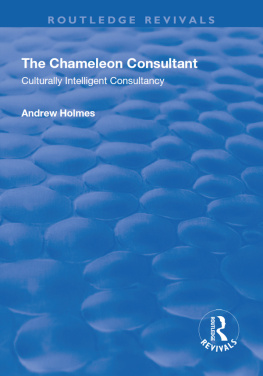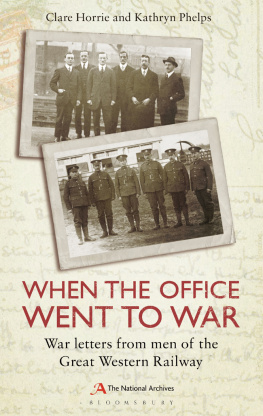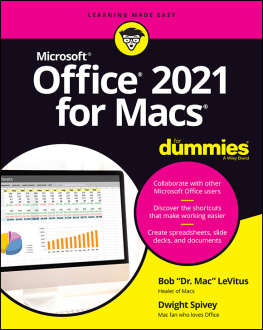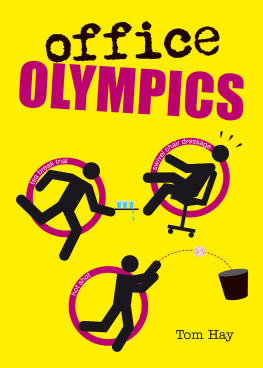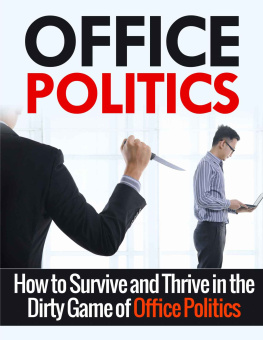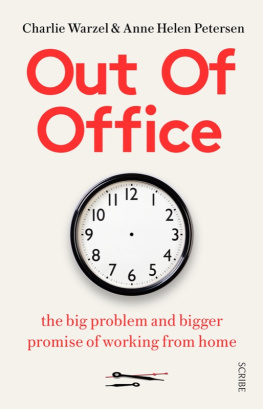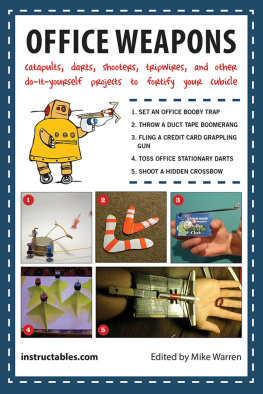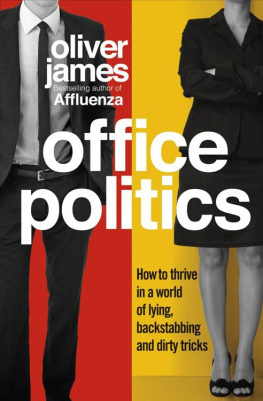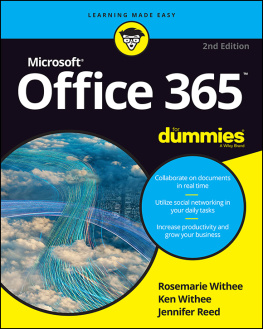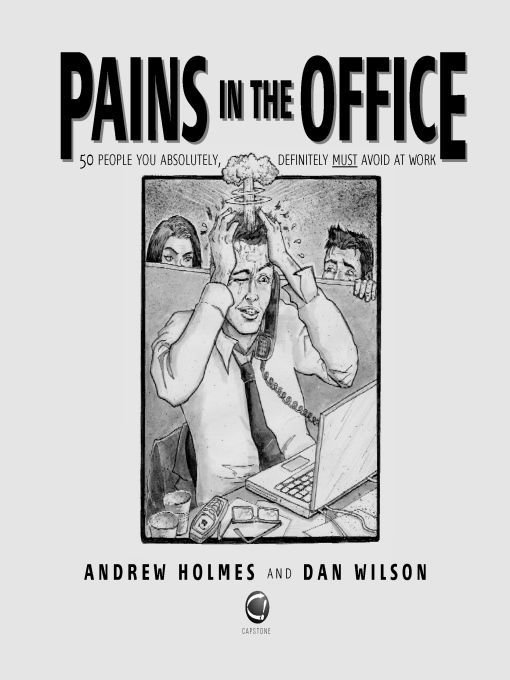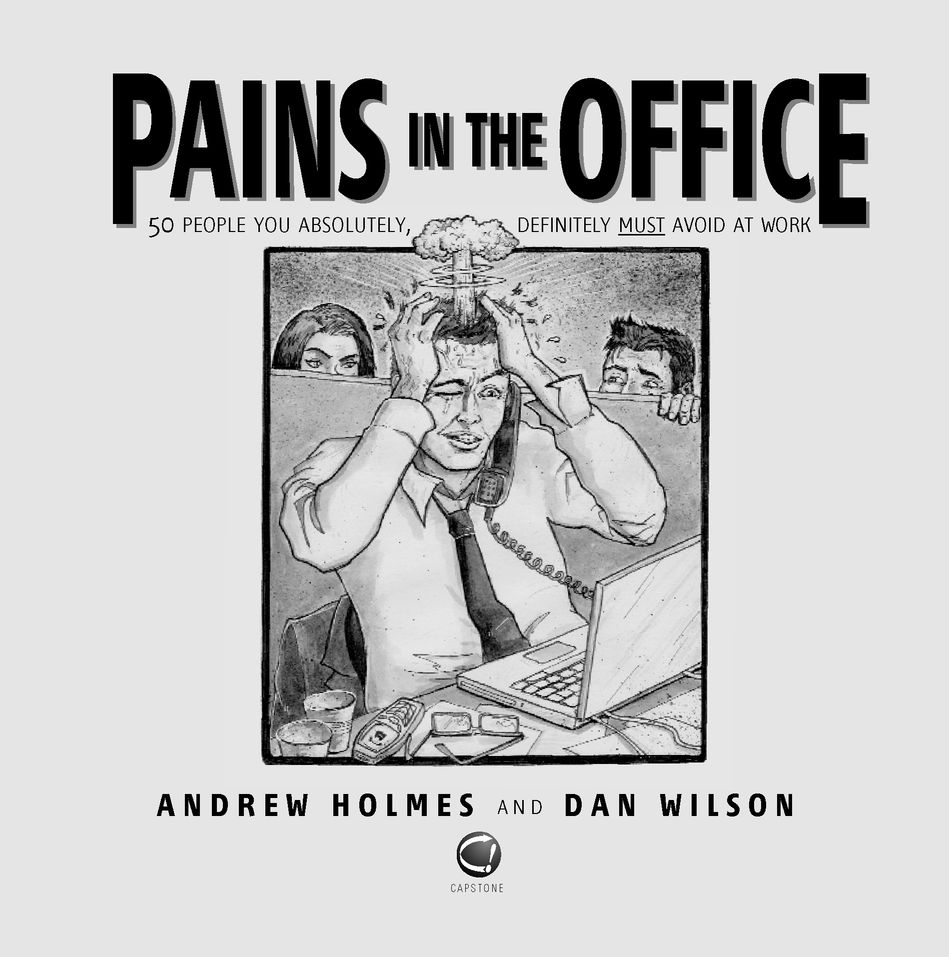Table of Contents
FOR WAGE SLAVES EVERYWHERE
Painsa catalyst for change
Who would have believed it? Pains on Trains was a great success, a bestseller and of course a great read. But wait a minute, theres more to this Pain-Spotting business than meets the eye. It has actually changed the way we commute. No sooner had the Broadsheet been exposed than the quality newspaper publishers started to ditch their broadsheet formats in favour of tabloids. First the Independent, then The Times. Theres only three left the Guardian, the Financial Times and the Telegraph, but I am sure it wont be long before they succumb to the power of Pains. Then a student at Chichester University, Hannah Watts, decided to base her dissertation on my book and staged a play in a mocked-up tube carriage. All your favourites were there, the Pervert, the Broadsheet, the Sleeper and the Traveller. I have also heard of avid Pain Spotters identifying and ticking off the Pains as they journey to and from work.
The phenomenon of Pains is changing the way we think and they way we behave. So its time to turn our attention to the next environment which needs some drastic surgery work. Pains in the Office will explore the dark side of the work environment and expose many of your colleagues who have been put on earth to upset, depress and annoy you. Its the perfect antidote to nightmarish co-workers everywhere!
Acknowledgements
Like any book, there are always people who provide invaluable input. I would like to highlight a small number of these observant ladies and gentlemen. James McColl, Martin Luther, Linda Latham, Elton Mayo, Andy Smith, Frederick Taylor, Nick Birks, Alistair Kett, Eric Cornish, Godert Van Der Poel, Sarah Tripp, Donna Peters and the host of people who would rather remain nameless. I would also like to thank Dan Wilson, the new illustrator who has made a fantastic job of injecting some additional and, at times, much needed humour; John Moseley, my editor at Capstone who helped to lighten the entries and of course Sally, who added her usual vital input. Boy, is she glad she doesnt have to work anymore.
The Joy of work
My father taught me to work; he did not teach me to love it.
Abraham Lincoln
I wonder just how many of us, given half a chance, would work. And by work I mean the standard scrape yourself out of bed on a Monday morning sort of work, not the vocational sort of stuff which really excites some, but by no means all. From the straw poll of the 2,872 workers I took whilst writing this book, it would be very few indeed. In fact, a paltry 14. The majority of us are economic refugees washed up on the shores of some unsuspecting company. Of course we all delude ourselves that the jobs we have are very interesting, immensely satisfying and are things that we had always wanted to do. In reality our current employers were probably the only people to offer us work. And we needed the cash Such working lives fall way short of fulfilment, irrespective of what the management theorists might have us believe. This lack of fulfilment is reflected in the increasing trend within the working population to downshift in order to get a more satisfying life. One in four people over the age of 30 has voluntarily taken a job with lower pay because they want an easier life in exchange for a drop in income of around 40 per cent. Another survey of the over-forties found that 65 per cent felt they were in the wrong job. And, finally, a survey which investigated how happy people were at work found that, for the most part, very few of us were extremely happy in our jobs. And it seems the more swanky the job (accountants, architects, pharmacists and IT experts), the lower the happiness. The converse was true, with hairdressers being far happier. Interestingly only 4 per cent of estate agents were extremely happy in their work (they probably deserve it though, dont they, after all they dont make us particularly happy either). Such surveys suggest that many of us have had enough of the testosterone-fuelled workplace where we are treated worse than slaves. We would rather be digging up rotten potatoes and eating stale bread. Another fascinating trend is the high-powered executive giving it all up to become a teacher. Apparently these people want to give something back to society. If only the toerags on the receiving end were a bit more appreciative
I occasionally muse on why all the fat cat and celebrity CEOs, who are extraordinarily wealthy, continue to work. Out of the entire working population, these are the lucky few; they have the opportunity to give it all up and pursue an amazing portfolio of other interests. But they dont. All I can imagine is that they are scared of growing old, losing the only source of self-worth they have and having nothing to look forward to but infirmity and incontinence pants. But the thing I find most odd are those lottery winners who proclaim that winning two million quid will make no difference to their life and that they will be turning up to work next Monday. Just who are they kidding? Having won that sort of money, no one will want to talk to them anyway, so they would be better off at home watching daytime TV and thinking how to occupy their incredibly small and unimaginative minds.
Of course, work is a necessity and one which the majority of us must endure for 30-40 years if only to keep the roofs over our heads, feed and clothe our families and put what little aside we can to survive old age. But why has the workplace become such a nightmare? And why do so many of our workmates drive us round the twist?
WAR, DARWINISM AND WORKSTROLOGY
I have three theories about work which shed some light on why there are so many Pains in the work setting. The first is the work is war theory, the second is the survival of the fittest (in essence, Darwinism) and the third is workstrology or star signs in the workplace. Of course, it is the third that people find the most interesting; everyone wants to believe that somehow their destiny is all mapped out by the stars and the fact that their boss is treating them like excrement is down to the fact that they are a Virgo and their boss a Taurus. Try telling that to a toilet attendant who has just slipped in some diarrhoea. Then, maybe, the diarrhoea is a Capricorn. Lets explore these three theories in a little more detail.
WORK IS WAR
There can be no doubt that the collective experience of the Second World War had a profound effect on everyone touched by it. Irrespective of whether those involved were frontline troops, the parents of those who lost their lives, or displaced and destitute civilians, the outcome was the same: a belief that the world deserved more humanity and that people should treat their fellow human beings with greater compassion and respect. The post-war world of work seemed to offer a wealth of opportunity that everyone was happy with. Employers were glad to get back (well, at least some) of the means of production and returning troops were glad to work in an environment where they didnt have to dodge bullets. Both employer and employee were conjoined in a happy and productive union. The work setting was benevolent, with the majority of people being treated with respect and having a reasonably good time of it. No long hours, no autocratic bosses, no backstabbing or infighting. This was the Harold Macmillan youve never had it so good era. For example, my father-in-law, who was an evacuee during the Blitz, spent his working life as a chemist with a major UK company. From the stories he has me told over the years, he had a fantastic time. There was a wonderful mix of focus, fun, excitement and camaraderie. The company would hold parties for staff, Christmas parties for their children and ship families to parts of Europe for social events. Contrasting this with the modern working environment highlights just how much has changed. Work has become more brutal, people have become more unfriendly and self-serving, and employers have become less bothered about treating staff with a modicum of respect. A significant minority have also become morally corrupt. There is a simple reason for this. As the collective experience of the horrors of the last war has attenuated, so has the way we treat our colleagues. Work is the new battlefield with the lead replaced by politics, the enemy by backstabbing and bullying workmates and the generals by oppressive, self-serving executives. It is just like war, with the Germans replaced by our colleagues desperate for promotion, trying to deflect blame and generally looking out for numero uno.


